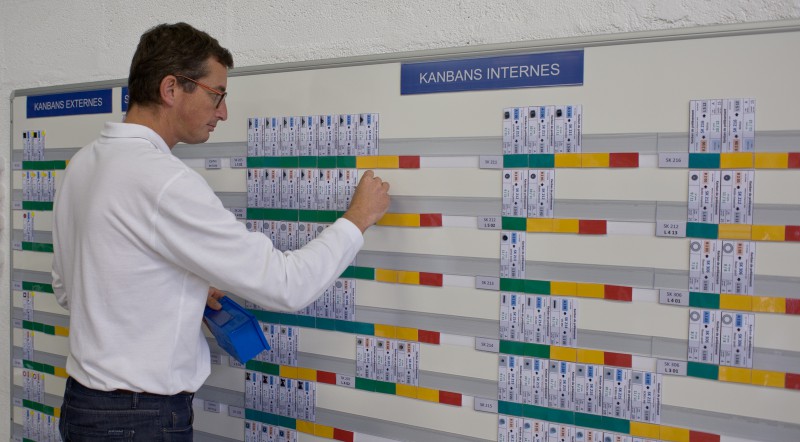Within today’s competitive business environment, agile methodology has been steadily implemented into operations and has become a trusted and preferred method of development for software teams within the software industry. Utilizing agile methods, organizations can respond to market changes considerably faster and deliver higher quality products all the while maintaining a competitive edge. This is why IT teams began to utilize agile practices and methodologies to accelerate development and respond to change on time.

Many Scrum teams utilize Kanban as a visual process and project management tool while other teams prefer to utilize only Scrum because of the well-defined process. Many Scrum teams have adopted other principles of Kanban that are useful in adding an extra layer of visibility to projects. When you are choosing between Kanban or Scrum, the distinction between the two doesn’t always have to be made because Kanban and Scrum can coincide. Having said that, it is important to understand how each of the methodologies are defined.
Scrum is defined as the process framework to structure work and one of the most popular agile methodologies. Scrum is by far the most often used to manage complex software and product development. It is considered an adaptive, iterative, incremental, flexible, and effective methodology designed to focus on delivering the highest value in the shortest amount of time throughout a project. When utilizing Scrum methodology, they must work in short iterations, cross-functional teams, with product owners, in iteration planning, and more.
Kanban is a technique that is utilized for managing software development processes in the most effective and efficient way possible. Kanban methodology is a less structured methodology than Scrum. There is no process framework in this methodology, and it only has an introduced model who improves the process through incremental improvements.
Scrum framework is highly perspective and has specific roles and ceremonies. With Scrum, some of the advantages include more transparency and visibility than any other methodology, increase in team accountability, is easy with and accommodates change, and is a cost saving development methodology. Having said that, some of the disadvantages include needing to be experienced with scrum, a Scrum team requires experience and a committed team, a less experienced Scrum master can ruin the whole process of development, and if the task are defined poorly then the project can be lead to inaccuracies.
Kanban is categorized as an easy to learn methodology that improves overall workflow and minimizes the time cycle. Some of the major advantages that are listed within Kanban include an increase in process flexibility, focused on continuous delivery, reduces the wastes from the process, improves delivery flow, and reduces the time cycle of the process. Some of the disadvantages of Kanban include an outdated Kanban board that can lead to issues in the development, can make the board overcomplicated, and lack of timing is another disadvantage because there is no timeframes associated with each phase.
Advanced Planning and Scheduling Software
Advanced Planning and Scheduling (APS) software has become a must for modern-day manufacturing operations due to customer demand for increased product mix and fast delivery combined with downward cost pressures. APS can be quickly integrated with a ERP/MRP software to fill gaps where these system lack planning and scheduling flexibility and accuracy. Advanced Planning and Scheduling (APS) helps planners save time while providing greater agility in updating ever-changing priorities, production schedules, and inventory plans.
Don’t Let Your Planning Process Be the Bottleneck
Kanban and Scrum help teams move faster and reduce waste—but if your production plan still lives in spreadsheets, you’re leaving money on the table. Bottleneck overloads, constant expediting, overtime, and excess inventory are all signs that your planning process hasn’t caught up with your agile mindset.
Download our one-page “The Money Is in the Planning” infographic to see the most common ways manual planning and scheduling quietly erode profit—and how Advanced Planning & Scheduling (APS) software can help you:
- Minimize waste and firefighting
- Improve flow across resources and work centers
- Align production with real capacity and demand
Use it as a quick checklist to spot where your current planning approach is holding you back.

See How Planning & Scheduling Software Minimizes Waste in Manufacturing (Video)
APS Resources